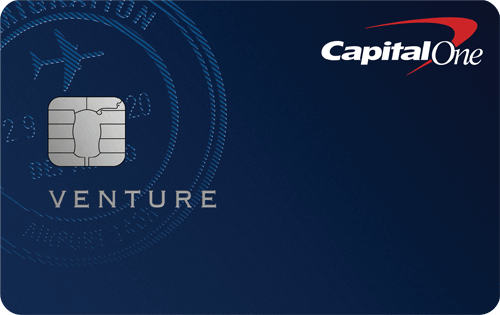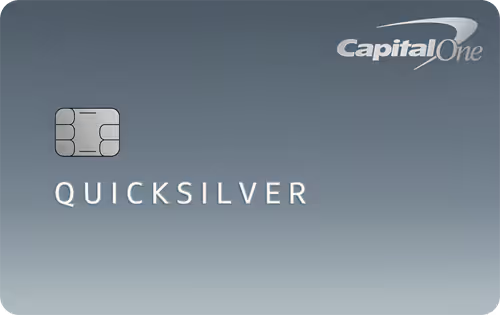Eric McFadden, Member
@ericmcfadden_1
Discover and Capital One credit cards have a few differences between them. Discover cards are not as widely accepted worldwide as Capital One. That’s because Capital One cards are backed by either the Visa or Mastercard networks outside of the U.S.
You should also know that Discover, which touts itself as an online financial services company, does not have branches. Capital One is one of the 10 largest banks the U.S. and has branches in Texas, Louisiana, Washington D.C. and several East Coast states.
Both Capital One and Discover offer credit cards with benefits for a wide range of customers. They cover needs from cash back rewards to 0% intro APRs to cards for students. While there are some similarities between the two, there are also some key differences you should keep in mind if choosing which of the two companies offers a better card for your needs.
Here are a few things you should know about Discover vs Capital One credit cards:
- Cash Back: Discover it® Cash Back vs. Capital One Quicksilver Cash Rewards Credit Card - Discover Wins
Capital One Quicksilver offers a consistent 1.5% cash back on all purchases. Discover it Cash Back gets you 5% cash back on up to $1,500 spent on quarterly rotating bonus categories when you activate. It gives 1% cash back on all other purchases. Capital One Quicksilver requires a good credit score, while Discover it Cash Back requires a good credit score. Neither charges an annual fee. Discover and Capital One each have additional credit cards with cash back options.
- 0% APR on Balance Transfers: Discover it® Chrome vs. Capital One Quicksilver Cash Rewards Credit Card –Discover Wins
The Discover it Chrome card gets you 0% for 18 months on balance transfers (3% intro balance transfer fee, up to 5% fee on future balance transfers (see terms)*), 17.74% - 26.74% Variable APR after. Capital One Quicksilver offers 0% for 15 months on balance transfers (a fee of 3% for the first 15 months, 4% at a promo APR that Capital One may offer you at any other time), 18.99% - 28.99% (V) APR after. Both cards have no annual fee. Capital One Quicksilver requires a good credit score, while Discover it Chrome requires a good credit score. Discover and Capital One also have additional 0% intro APR offers, including 0% APR on purchases.
- Travel rewards: Discover it® Miles vs. Capital One Venture Rewards Credit Card– Capital One Wins
If you don’t mind paying the $95 annual fee, Capital One Venture offers 2 miles / $1 spent on every purchase. The Discover it Miles card gets you 1.5 miles / $1 spent on all purchases and has no annual fee. The big difference is in the intro bonus. Discover it Miles matches all miles new cardmembers have earned at the end of their first year, and Capital One Venture nets you a one-time bonus of 75,000 miles for spending $4,000 on purchases within 3 months from account opening. Both cards’ miles are worth 1 cent each. A good credit score is required for both cards.
- Cards for rebuilding credit: Discover it® Secured Credit Card vs. Capital One Platinum Secured Credit Card– Discover Wins
With the Capital One Platinum Secured you can put down a security deposit of $49, $99 or $200. Discover it Secured Credit Card, however, requires a minimum deposit of $200. But it does earn you 2% cash back at restaurants and gas stations up to $1,000 in combined purchases each quarter. And you’ll also be considered for an unsecured card after 7 months. Capital One, on the other hand, may grant you a higher credit limit without an additional deposit if you make your first 6 monthly payments on time. Neither card has an annual fee.
- Cards for students: Discover it® Student Cash Back vs. Capital One Quicksilver Student Cash Rewards Credit Card – Discover Wins
Capital One Quicksilver Student Card offers 5% cash back on hotels, vacation rentals and rental cars booked through Capital One Travel, 5% cash back on Capital One Entertainment through 12/31/25, and 1.5% cash back on all other purchases. Discover it Student Cash Back offers 5% cash back on your first $1,500 per quarter on rotating categories when you activate. And Discover matches all cash back you’ve earned at the end of your first year as a new cardmember. Neither card charges an annual fee.
- Cards for small businesses: Capital One Spark Cash Select vs. N/A – Capital One wins
Discover is at a clear disadvantage here because it does not offer any small business credit cards. Of Capital One’s seven business card offerings, the Spark Cash Select is best. It yields 1.5% cash back on all purchases. There is no annual fee and it requires excellent credit for approval. It also offers $750 for spending $6,000 in the first 3 months. Other Capital One business card options include ones with travel rewards and a card for business owners with limited credit history.
- Secondary Benefits: Discover credit cards vs. Capital One credit cards – Capital One wins
Capital One offers car rental insurance and extended warranty protection among other benefits.
Discover doesn’t offer secondary benefits on any of its cards; Capital One offers these benefits on most cards. But its benefits are actually through Visa or Mastercard, which means wider acceptance than Discover, particularly outside of the U.S.
Discover and Capital One do not charge foreign transaction fees on any of its cards.
- Customer Service / Satisfaction: Discover credit cards vs. Capital One credit cards – Discover wins
Discover’s customer service is 100 percent U.S.-based and its customer service representatives are available 24/7. You can contact them by phone or online chat. Capital One only offers 24/7 customer service for automated support, while human representatives are available from 8 a.m. to 11 p.m. EST. You can contact them by e-mail, with a one to two days response time. But there’s no chat or online messaging features, which limits customers’ access.
- Something else to consider: Both Capital One and Discover allow pre-approval for their credit cards. You can go online and check for pre-approval for multiple cards at one time. Both perform a soft inquiry on your credit that does not impact your score. This is an ideal way to see if you qualify for a credit card without the hard credit inquiry and damage to your score. You should take advantage of this feature to research these two brands further and shop around for the best deals.

People also ask
Did we answer your question?
Important Disclosures
Ad Disclosure: Certain offers that appear on this site originate from paying advertisers. For full transparency, here is a list of our current advertisers.
Advertisers compensate WalletHub when you click on a link, or your application is approved, or your account is opened. Advertising impacts how and where offers appear on this site (including, for example, the order in which they appear and their prevalence). At WalletHub we try to present a wide array of offers, but our offers do not represent all financial services companies or products.
Advertising enables WalletHub to provide you proprietary tools, services, and content at no charge. Advertising does not impact WalletHub's editorial content including our best picks, reviews, ratings and opinions. Those are completely independent and not provided, commissioned, or endorsed by any company, as our editors follow a strict editorial policy.




Capital One is HORRIFIC !!